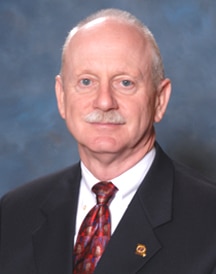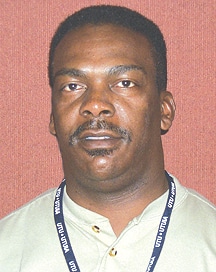Former UTU International President Al Chesser (1972-1979) is now 97 years old, and the fire in his belly in support of organized labor has never dimmed.
The following was written by Chesser in response to creation by President Mike Futhey of the Collective Bargaining Defense Fund, intended to create public awareness of — and opposition to — the attack on collective bargaining rights by political extremists in scores of states and in Congress. Before his election as UTU International president, Chesser was the UTU’s national legislative director.
By Al Chesser
The objective of political extremists — those holding elective office and those seeking elective office — is to destroy labor unions, which are among the most patriotic and democracy-loving organizations in our nation.
When dictators take over a country, one of their first objectives is to destroy labor unions. If this no-compromise, labor-union hating group takes control of the U.S. House of Representatives and U.S. Senate — as they have done in a number of state legislatures — America could cease to be a democracy.
This group of extremists not only is targeting collective bargaining rights; it is intent upon destroying Railroad Retirement, Social Security and Medicare, threatening the financial security of current and future retirees.
If these political extremists are able to destroy organized labor, they will destroy the many achievements of the labor movement, and the principles we have worked and sacrificed so hard for on behalf of working families.
Overtime pay, paid vacations, employer-provided health care, retirement benefits and workplace safety laws and regulations all exist because of labor unions — and all are coming under attack by political extremists.
I am grateful for this opportunity to contribute $500 to the UTU’s Collective Bargaining Defense Fund to help fight this war against organized labor and working families.
I say to every labor union officer and union member: Don’t get caught asleep at the switch. Don’t let these political extremists fast talk you. If they destroy organized labor, our financial security will be a shambles. Our earnings, benefits and workplace safety will no longer be collectively bargained. We will be at the mercy of employers.
To my railroad brothers and sisters, I tell you that this would set us back to the 1800s, when the lives of working men and women were nearly the equivalent of slave labor.
The threat from today’s political extremists is the most dangerous we have faced since before enactment of the Railway Labor Act and the National Labor Relations Act.
Light the fire in your belly and join our fight. We can, will and must beat back this attack from those who want to destroy the union movement in America.
Please contribute to the UTU Collective Bargaining Defense Fund, and participate in the UTU Political Action Committee.
 By General Secretary & Treasurer Kim Thompson
By General Secretary & Treasurer Kim Thompson